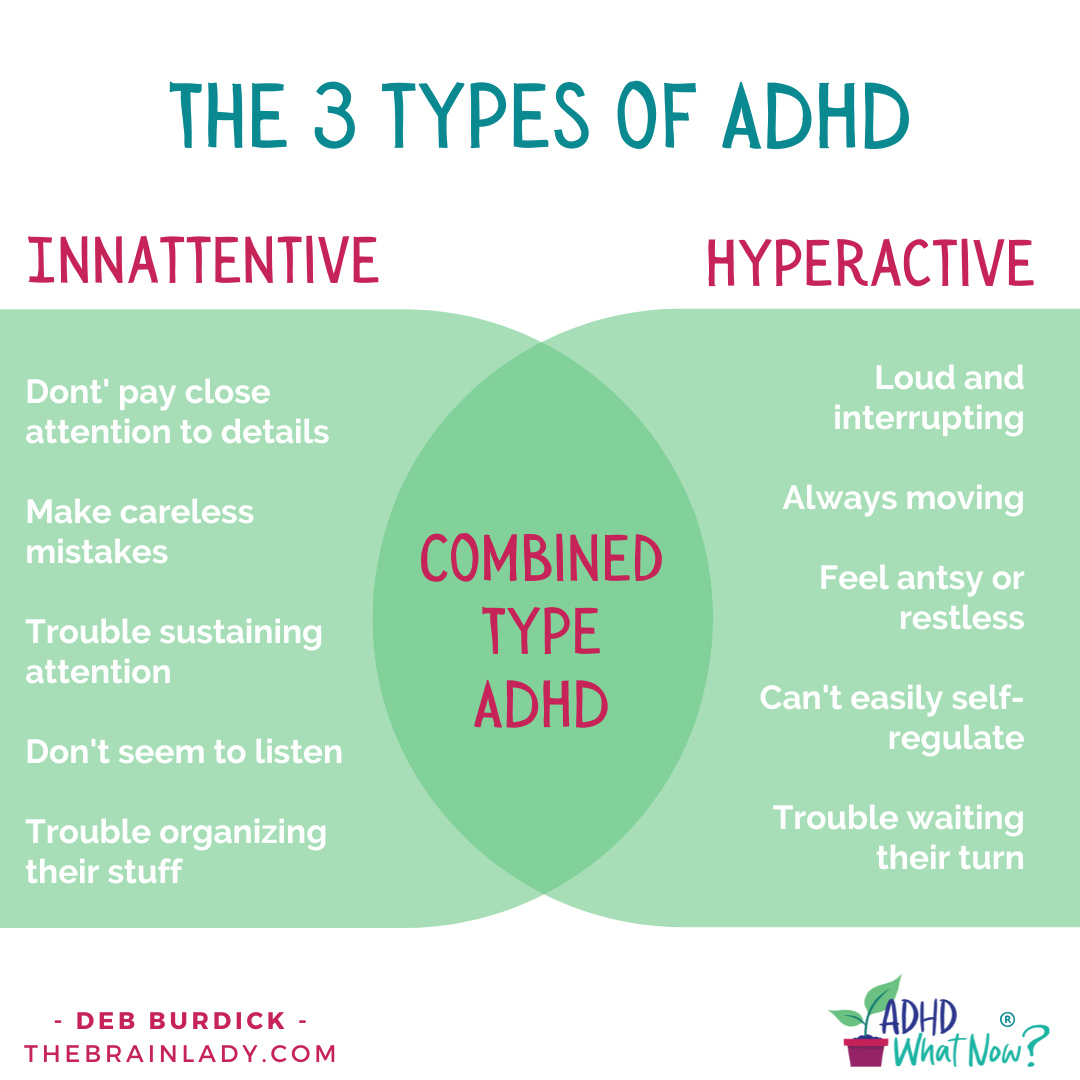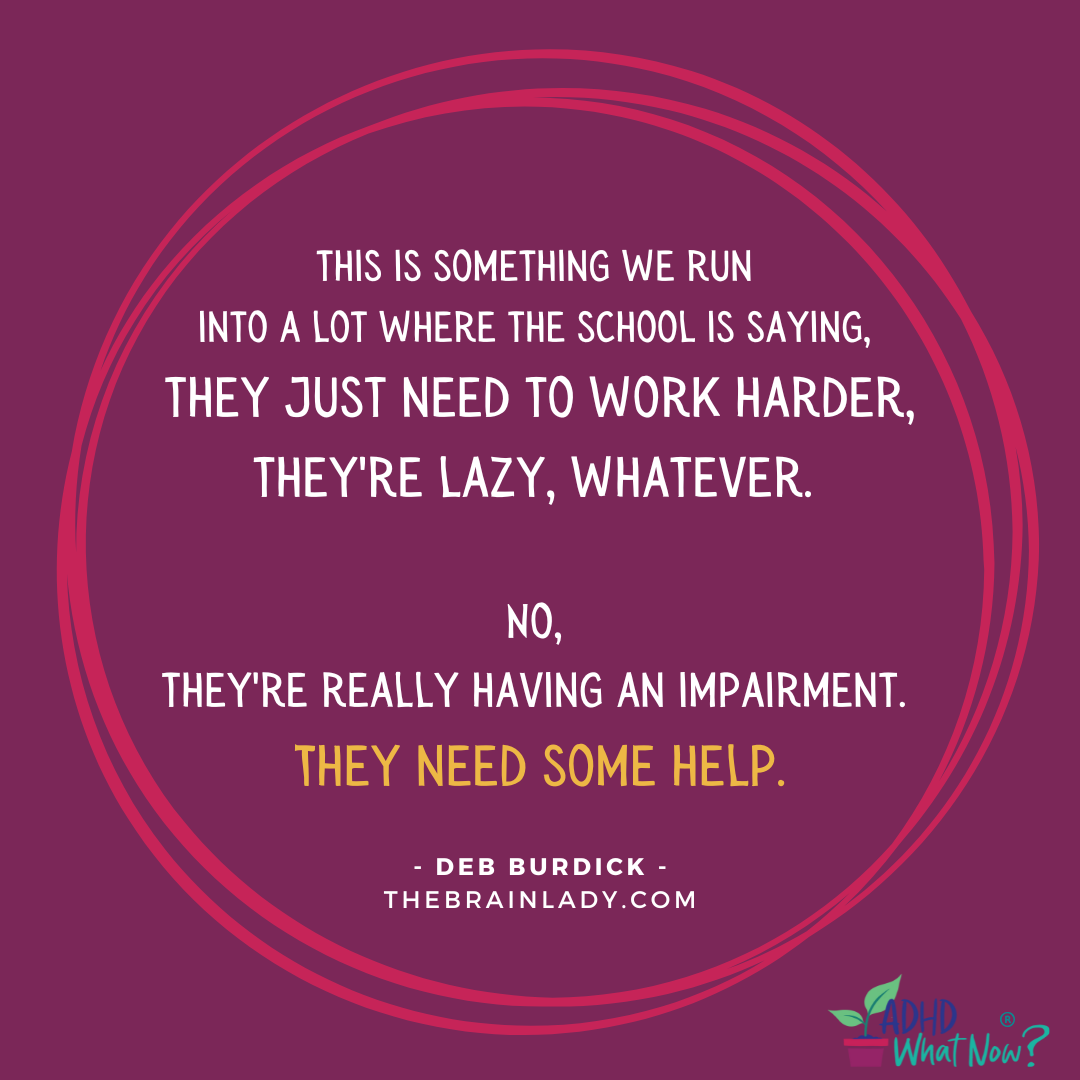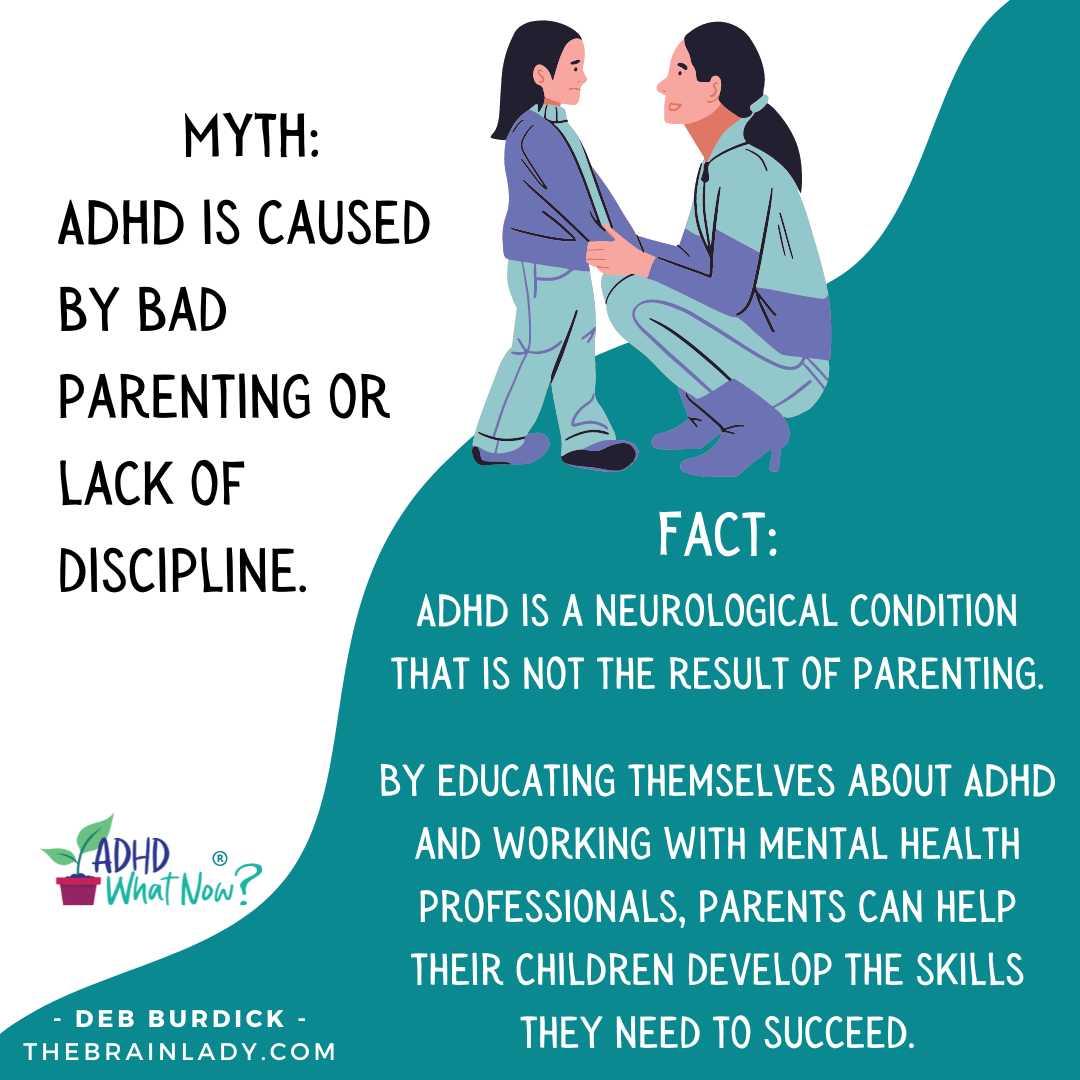The 3 Types of ADHD and What They Look Like in Kids
Apr 04, 2023Are you a parent struggling to recognize ADHD symptoms in your child? Do you feel like you're fighting an uphill battle and everything just seems harder for your child compared to their peers?
Well, let me tell you, you're not alone in this. As a parent, it's tough to see our kids struggle, but there is hope and there is help available.
That's why I'm excited to share with you my interview with Debra Burdick, a licensed clinical social worker with over 30 years of experience working with kids with ADHD. She shares some powerful insights into the symptoms of ADHD, how to recognize them in everyday life, and what criteria are used to diagnose ADHD.
But here's the thing, it's not enough to just know the symptoms. If you suspect your child may have ADHD, it's important to take action and seek professional support. You don't have to navigate this alone.
That's why we've included a link to Burdick's website and our own website, where you can access free resources and take the next step in finding support for your child and family. With the right support, your child can thrive and reach their full potential.
Remember, you've got this, and we're here to support you every step of the way.
LINKS
Debra Burdick's Website: https://thebrainlady.com/
ADHD Rating Scale: ADHD-Rating-Scale.pdf (thebrainlady.com)
SHAREABLE GRAPHICS




FULL TRANSCRIPT
Veronica: So are you wondering what does ADHD look like in everyday life with your kiddo? What things might they be doing that would be prompting you to look into, maybe I need to ask a professional about an ADHD diagnosis so that I can understand what's going on for this unique individual.
Now first off, if everything just seems a little bit harder for you, than for perhaps most of your peers, it is worth watching this video because ADHD does cause stress in families and sometimes people can get stuck, a lot of people do get stuck, in this loop of, if I could just be more disciplined in my parenting.
Let me assure you, the official word from Dr. Russ Barkley is that ADHD is real. And if there is more difficulty, you need to investigate and figure out if that is the source of the reason behind those difficulties. And once you figure that out, then you can move forward with how to support in the best way possible.
So my name's Veronica Hunter, the founder of ADHD - What Now? and today I'm going to introduce you to Debra Burdick.
Now she is a licensed clinical social worker who has taken her 30 years of practice with kids with ADHD to write this. She's written several books. This is an award-winning book that she has written. It's called 'ADHD, Non-Medicated Treatments and Skills for Children and Teens'. And it's phenomenal.
And she's here today to share with you about what are the symptoms of ADHD, what does it look like in everyday life? What are the ways of which people, or what are the criteria that people go to come up with an ADHD diagnosis? So dig right in and enjoy.
Debra: When your child has something, you want to learn, everything you possibly can about it. And I studied with different other experts, Ned Hollowell, who had written some, you know, groundbreaking books on it, 'Driven to Distraction'. And Dr. Russell Barkley psychiatrist, he's done a lot of research in ADHD.
So I just started absorbing everything I could as a sponge to try to help her.
Veronica: That's wonderful to know that background and experience. Can you share with us then some, what are the symptoms of ADHD?
Debra: Well, let's talk about what it shows up like.
There are three, actually three types of ADHD. There's an inattentive type primarily inattentive, and there is a hyperactive impulsive type. And then there's actually a combined type.
So let's start with the inattentive symptoms. You know, and while you're listening to this, I would recommend that you take some notes and also set your intention to see how these symptoms might apply to your child. You know, do they have that, like check them off as we go down here and take some notes. Because when you really think about it that way, you start to absorb it a little bit better.
So the first one is that they don't pay close attention to details. And they make careless mistakes. They miss the, you know, what they're supposed to do. They didn't, they just didn't catch it. They may maybe add instead of subtract, that kind of thing, on their papers. And they have trouble sustaining attention.
They might be able to pay attention for a little while, but not for long. And don't count being able to watch TV forever. That doesn't count because TV is very stimulating. It draws their attention. It's designed to do that. This is more about, you know, trying to finish a chore that they have or play in a game or doing their homework. Anything that they typically would be doing as a child.
And they don't seem to listen. They appear like they're not listening. Oftentimes, sometimes they actually are listening, but they don't maybe look like it. They don't follow instructions and they fail to finish their homework, their chores, whatever they're trying to do. And they do things, you know, they may get all done and discover that they didn't follow the instructions on a homework assignment or something.
It can be very discouraging for these kids. They have trouble organizing their stuff and their activities. So their backpack can be a mess. Their desk, their room, they might not be able to organize the schedule for how to get their homework done in time. That kind of thing.
They avoid, they really dislike doing things that take that sustained mental effort. Because it's hard, you know, it's really hard to stay on task when you have this busy, busy brain. They lose things like their homework, their book, their coat, whatever, their shoe, typically losing things.
They're easily distracted and forgetful, forget to do the things that they're supposed to be doing. So they need site of performance reminders that give them a list of all the things they're supposed to be doing right now so they can check them off.
So in order to qualify for the inattentive type, you need six or more of these symptoms. If you're under the age of 17.
And I forgot to tell you that on my website at www.thebrainlady.com, if you look at the mindfulness helps button and go, when the menu drops down, press ADHD, this is all on there. And at the very bottom of it, there's actually a PDF of a symptom checklist that you can download for you. And of course, they're all available in my book. Everything I'm talking about today is in my book that we'll talk about later.
So the second is the hyperactive impulsive type. Now, the inattentive type often gets missed because they're sitting there daydreaming, looking out the window. They're not making any noise, they're not interrupting, they're sitting quietly. You don't notice them.
Kids with a hyperactive, impulsive type usually get diagnosed or noticed because they're loud. They're making a lot, you know, interrupting, they're making a lot of commotion, whatever they're moving. So these symptoms are that they fidget with their hands or feet or they squirm in their seat.
They get up from their seat when they're supposed to be sitting. My daughter could not sit when she was eating a meal. They run about or climb when it's not appropriate. And for older adolescents and adults, they might just feel antsy or restless.
They have trouble playing and enjoying leisure activities quietly, right? They're always making sounds. I could always tell when a child with ADHD of this type came into my waiting room, because it was loud, I could hear them.
They're often on the go. They're acting as if they're driven by a motor. They're just turned up way too high. Their arousal state is just way high. And they're not able to easily self-regulate that and turn it down when they need to.
They talk excessively like nonstop. Sometimes you wonder if they ever take a breath and they're always talking about one thing after another, after another, after another. Their train of thought just keeps going from one thing to another. It's hard to keep them on topic. They blurt out answers before the questions even been finished.
When they have trouble waiting their turn and they interrupt and intrude on other people, they're often, you know, that's a social skill issue that gets in their way of having friends because other kids don't like that.
So they need six or more of these to have the impulsive symptoms. And the third type of ADHD is the combination. It's the combined type. They are inattentive and hyperactive and they have all the symptoms, you know, that they need to qualify for either of those.
So just one more thing about this is that some of these symptoms have to have caused impairment and they have to have been present before they were 12 years old, so they don't get them later, right? Something else is caused, it has to have been there. Used to be before seven years old, but they changed that.
And these impairments have to be present in two or more settings. So at school, at the church, in sports, at home, at least two different settings. And that there has to be significant impairment.
I mean, this is something we run into a lot where the school is saying, well, you know, they, they just need to work harder, they're lazy, whatever. No, no, no, they're really having an impairment. They need some help. So they have to have an impairment in their social skills in their school, you know, in two or more environments.
Veronica: So thank you to Deborah Burdick. You can find her website linked above. And if you want to learn some more or go a little bit farther, you can also go to WhatNowADHD.com where I've got some free resources there for you.
One of which is to get access to the rest of this interview with Debra Burdick, along with more than 20 other experts in the field of ADHD. And this was one of our ADHD - What Now? events where I put together kind of a comprehensive picture of what your options are for support.
And you can go there and pick your unique next step for your kiddo and your family.